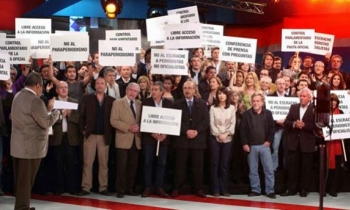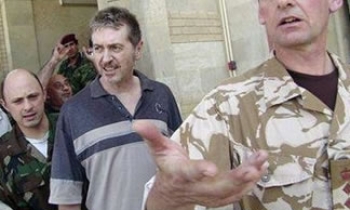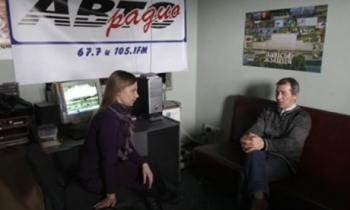BEIRUT -- Thousands of Muslims rioted Sunday in downtown Beirut, setting fire to the Danish Consulate, attacking a Maronite Catholic church and smashing car and shop windows in protest of the publication of cartoons of the Prophet Muhammad in Western newspapers.
The violence took a sectarian turn as demonstrators cut an angry path through a predominantly Christian neighborhood.
It was the first time in days of protests around the world that Muslims, who consider caricatures blasphemous, took their anger out on another community. For Lebanese, the rioting was a echo of a 15-year civil war fought along religious lines.
The riots came a day after similar unrest flared in the Syrian capital, causing some in Beirut to question whether Syria may be latching onto the controversy for political purposes. After sending soldiers into Lebanon during the civil war, Damascus remained the de facto ruler of its neighbor for years before withdrawing its soldiers last spring.
Lebanese Prime Minister Fuad Saniora suggested the Damascus riots were "a lesson to some in Lebanon to do the same." There was no immediate response from Damascus.
In Beirut, rioting occurred in the Christian neighborhood of Ashrafieh, leaving at least 30 people injured and one dead, according to news agencies.
Wielding hammers, rocks and clubs, demonstrators packed the streets, chanting against Jews and the United States. Many marched calmly, but others torched cars and trash bins, smashed a police car against a church and uprooted trees.
Lebanon's most senior Shiite Muslim cleric, Grand Ayatollah Muhammad Hussein Fadlallah, issued an edict banning violence, saying it "harms Islam and Prophet Muhammad the same as the others [the publishers of the cartoons] did."
The cartoons were the topic of most of Friday's sermons at Chicago-area mosques, said Ahmed Rehab, spokesman for the Council on American-Islamic Relations' Chicago office.
"And what we were saying is that we need to react in a way that does the Prophet justice, not more injustice," he said.
CAIR has spoken out against the violent reaction of some Muslims.
The demonstrations in Beirut were the latest eruption of outrage. European governments defend the publication of the 12 cartoons--one depicts the Prophet Muhammad with a turban shaped like a bomb--by citing freedom of the press.
Denmark reportedly had evacuated its consular offices in Lebanon in anticipation of a Muslim backlash and urged its citizens to leave Lebanon.
Thousands took to the streets elsewhere in the Muslim world and parts of Europe. About 3,000 Afghans burned a Danish flag and demanded that the editors at Jyllands-Posten, which first printed the caricatures, be prosecuted for blasphemy.









